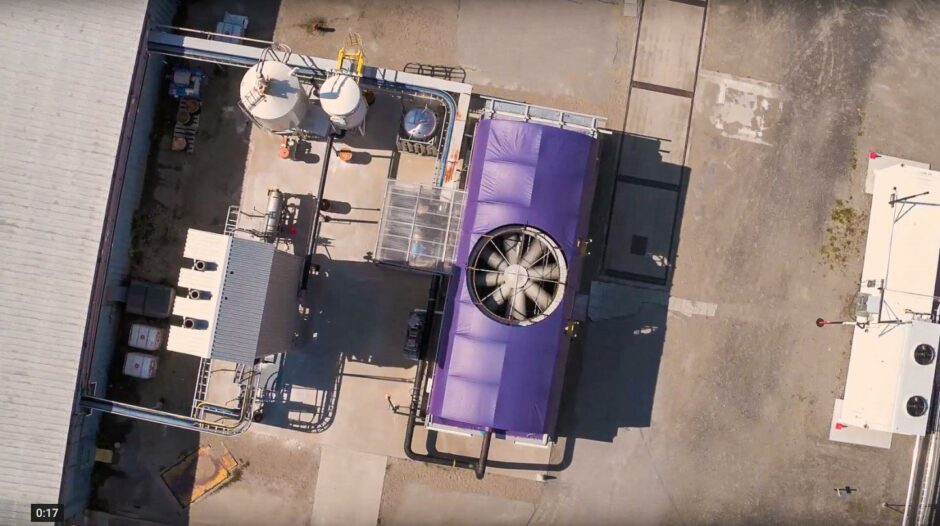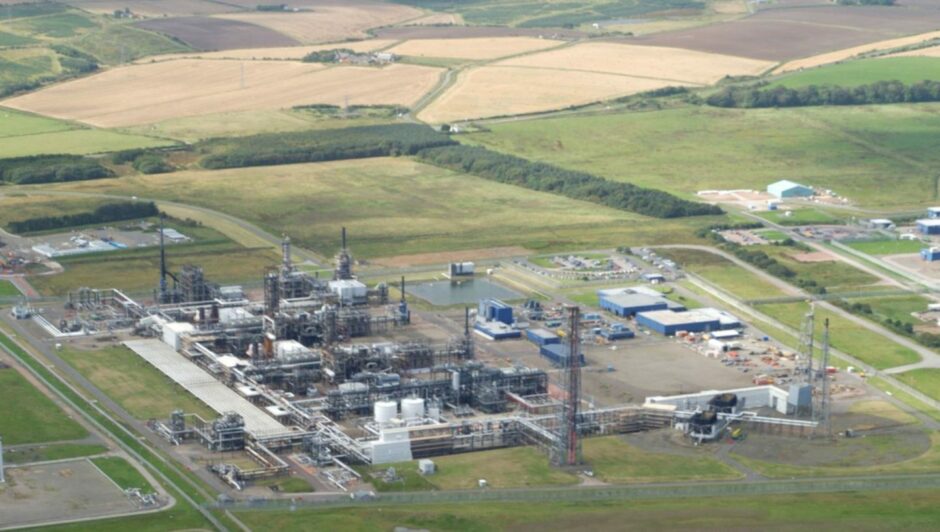
Low carbon technology firm Storegga has signed an agreement to advance the deployment of direct air capture (DAC) in Scotland.
The London-headquartered business has concluded a memorandum of understanding (MOU) with Japanese trading and investment company Mitsui.
Together they will progress the commercialisation of DAC, supporting the development of the UK’s first facility in the north-east of Scotland.
Mitsui is already an investor in Storegga and the MOU will enable a closer working relationship between the two firms.
In doing so they will help to realise the first large-scale DAC facility in Europe, with the potential to extract one million tonnes of CO2 from the atmosphere annually.
Westminster has an ambition to deploy at least 5 metric tonnes (M/T) of carbon a year by 2030.
Once developed, the Aberdeenshire DAC project will act as a blueprint for deploying the technology elsewhere in the UK and internationally.
It will also be a key enabler in hitting the UK and Scotland’s legally binding net zero targets by 2045 and 2050 respectively.
International customers will also be able to pay to use it, with Virgin Atlantic already signing up to offset its emissions.
Nick Cooper, chief executive of Storegga, said: “The UK’s decarbonisation knowledge and technology are highly attractive to the world’s leading international infrastructure developers. Investor appetite is strong but the path to decarbonisation is complex and will require the best minds from around the world, working together. The support of the UK government is vital. Offshore wind has been a great success for the UK as a result of its supportive regulatory framework; the UK has the opportunity to repeat this early mover success with Direct Air Capture.
“The international energy crisis has highlighted our need for enhanced self-reliance. Taking a leading position on direct air capture gives us the opportunity to develop our own decarbonisation industry, creating jobs along the supply chain and sharing these skills and knowledge with the world. Mitsui’s commitment says a lot about the quality of endeavour of the UK decarbonisation industry, and we look forward to working with the UK Government on a favourable regulatory regime that sets us up for future success.”
Captured carbon will be transported to the St Fergus gas terminal, the home of the Acorn carbon capture and storage project.
Acorn is currently in the detailed engineering and design phase and is being developed by Storegga in partnership with Shell and Harbour Energy.
There it will stored permanently in depleted North Sea oil and gas reservoirs and saline aquifers.
Storegga said Acorn is expected to be up and running by the mid 2020’s despite the Scottish Cluster, of which it is a key part, missing out on government funding last year.
As part of the MOU, Mitsui will share its own technical knowledge and explore opportunities to partner businesses around the world.
In addition to joint studies to commercialise DAC technology, the pair will also consider and assess the possibility for Mitsui to coinvest in and offtake credits from the DAC project.
Toru Matsui, chief operating officer of the energy business unit 1 and energy solutions business unit at Mitsui said: “Since our initial investment in March 2021, we have been closely supporting Storegga to grow its businesses with our expertise in the upstream energy sector and our extensive global network. We are truly excited to conclude this MOU. Being a Negative Emissions Technology, DAC projects can generate carbon credits which will be critical in offsetting emissions from hard-to-abate sectors globally and achieving net-carbon zero targets.”
In its initial phase, Storegga’s Aberdeenshire DAC facility will sell carbon credits to large organisations to offset their carbon emissions.
For that to happen a regulated carbon credit mechanism needs to be established and UK Government is currently consulting on business models to support the technology.
Sanjay Parekh, head of direct air capture at Storegga, said: “Direct air capture is a meaningful way to truly and permanently offset carbon generation. The recent Energy Transitions Commission report concluded that direct air capture will be an essential component of cleaning up our atmosphere. We had a huge amount of interest in our business at COP26. The early adopter companies who want to talk to us about buying direct air capture carbon credits are leading businesses around the world with ambitious environmental, social and governance (ESG) strategies. Businesses with a genuine desire to reduce emissions, avoid flaky offsetting, and have tangible plans to permanently remove CO2. With the right support, direct air capture will not only reduce carbon in the coming years but could reverse the carbon damage done since the industrial revolution.”

 © Supplied by Shell
© Supplied by Shell